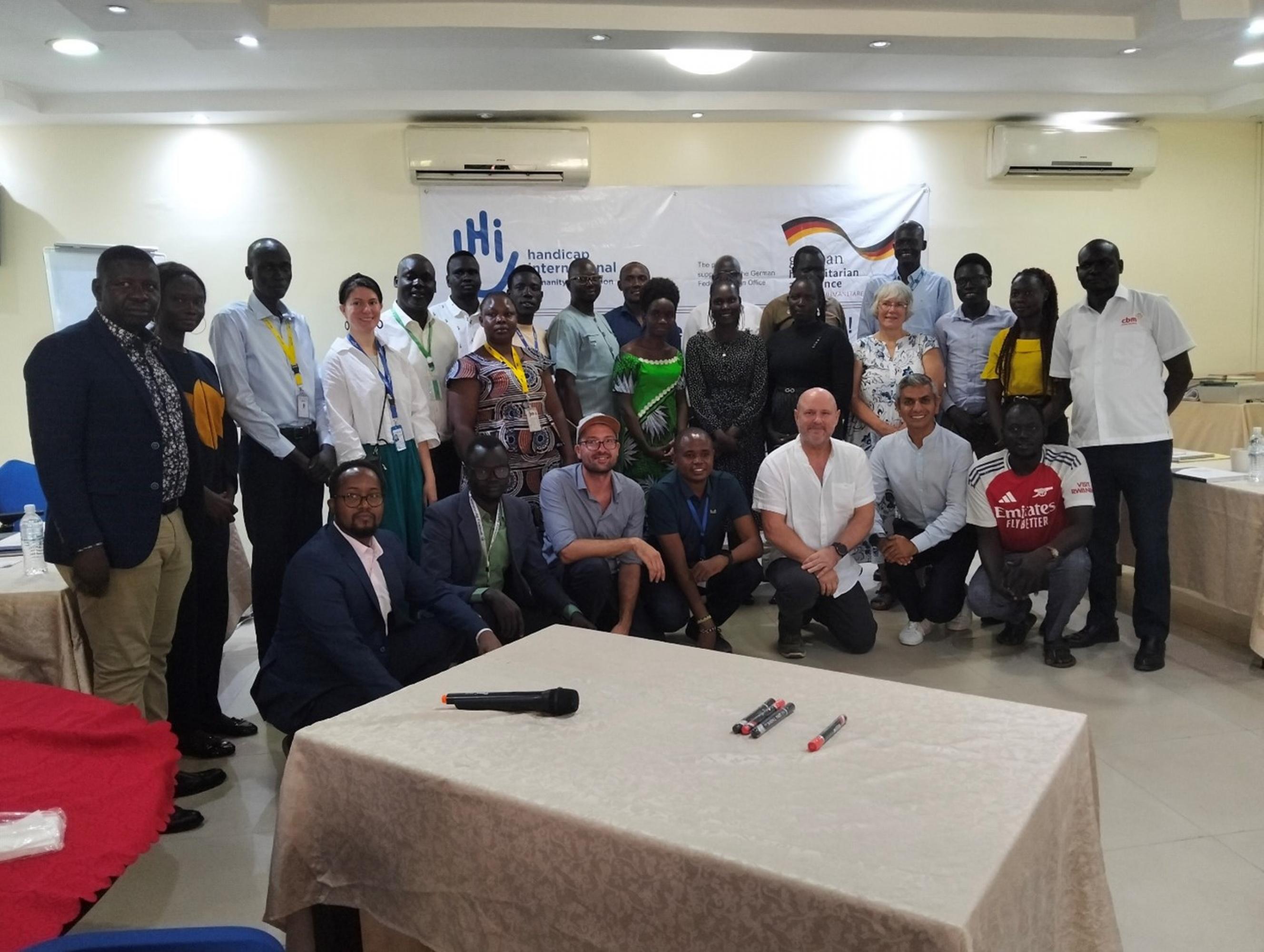Piloting iWASH Learning Package: Overcoming Exclusion in Humanitarian WASH Action
Category
Capacity Building IASC-Guidelines Pilot Countries
© Obale Musa / HI
HI’s project team in South Sudan provided a training session piloting the recently developed inclusive Water, Sanitation, and Hygiene (iWASH) learning package to WASH cluster members in Juba, South Sudan.
The training was held on 25-27 September in Juba and it reached 24 participants from 12 National and 9 International Non-Governmental Organizations. The training session was facilitated by using the newly developed disability-inclusive WASH learning package, which will be published soon.
The training package has been adapted from the Disability Reference Group’s training modules “Introduction to Disability-Inclusive Humanitarian Action” and outlines how to include persons with disabilities in humanitarian WASH response. It focuses on a variety of key concepts, including the concept of disability, intersectionality, barriers, and increased risks in humanitarian WASH activities.
The training involved active participation and interaction, using a combination of methodologies. Participants were introduced to the IASC Guidelines on Inclusion of Persons with Disabilities in Humanitarian Action with a focus on WASH efforts, as well as topics such as Accessibility, Universal Design, Reasonable Accommodation in WASH settings, the Must Do Actions (MDAs), and the Twin Track approach to promote inclusion in WASH programs. Participants not only gained knowledge on key disability concepts, but also improved through peer-to-peer learning and networking with OPD co-facilitators for future programs. Feedback from both facilitators and participants will be incorporated to enhance the learning package before its final publication.
In order to ensure meaningful involvement of individuals with disabilities, two representatives from South Sudan Association of Visually Impaired (SSAVI) and Union of Persons with Disabilities (UPD) were engaged as co-facilitators. They led discussions on disability concepts, the Must Do Actions, and shared many examples and personal experiences – all of which improved participants’ comprehension and provided valuable insights. Two of the participants concluded:
“This training not only taught me about inclusive WASH programming, but also altered my views on people with disabilities since I have family members with disabilities.”
“I have taken part in numerous WASH workshops, but this one has stood out to me, particularly module four on Accessibility, Universal Design, and Reasonable accommodation using the Reach Enter Circulate and Use approach. I plan to implement this approach in our WASH projects to guarantee accessible facilities.”
Text by Obale Musa, HI South Sudan